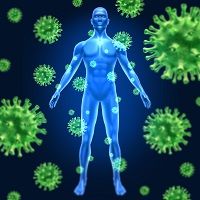Bad News: HIV Can Still Grow Regardless of Treatment
The human immunodeficiency virus (HIV) has proven to be increasingly stubborn as a new study reported that even treatment may not slow its replication.

The human immunodeficiency virus (HIV) has proven to be increasingly stubborn as a new study reported that even treatment may not slow its replication.
HIV hides in immune blood cells, CD4 T-lymphocytes, and inserts its genetic information into the patient’s DNA. Anti-retroviral therapy (ART) is used to stop the virus from replicating as well as prevent CD4 cells from depleting. A team of researchers from the University of Liverpool revealed that even with years of therapy, the virus can continue to integrate into CD4 cells — a discovery that lead author Anna Maria Geretti described as “surprising.”
“This research shows that sadly, the HIV virus has found yet another way to escape our treatments,” Geretti, a professor of clinical infection as well as microbiology and immunology at the university, said in a news release.
The study included 50 patients who had undergone efavirenz-based or neviapine-based therapy for anywhere between one and 14 years. The findings published in EBioMedicine determined that integrated HIV DNA load was not dependent on the duration of suppressive ART.
“We always knew HIV is difficult to completely suppress and that it hides inside CD4 cells, but we always hoped that as the body gradually renews its CD4 cells then the hidden HIV would die out,” Geretti explained.
Longer ART duration was associated with increased amount of CD4 cells. However, the researchers explained that when CD4 cells multiplied, the HIV genes replicated with it because they were integrated in the immune cells — a process labeled as a silent replication.
Unfortunately, this means that even if a patient appears to be responding well to treatment, the virus may still be replicating.
“The good news is that we did not see any worsening, but the bad news is that these findings really case doubt over whether HIV can ‘cured’ by increasing immune cell responses against it — a strategy that now looks doomed to fail,” Geretti concluded.